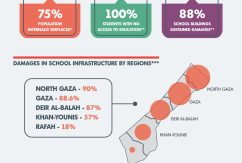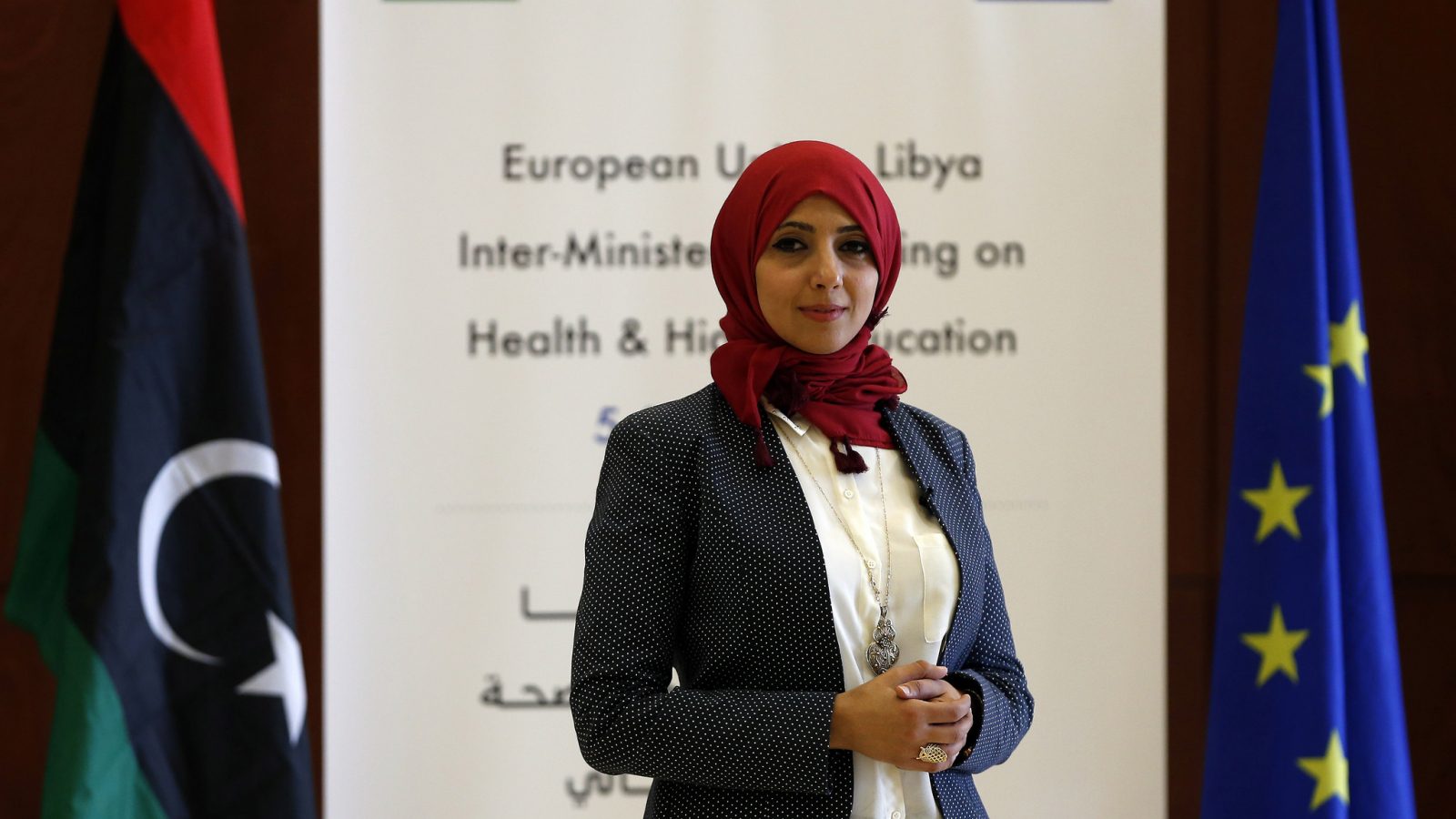Europe opens up to Libyan students
Libya’s brightest academic stars share their experiences of studying in Europe to encourage the next generation to embark on the adventure of a lifetime.
Taking the step to leave family and country is a leap into the unknown for any student, but the rewards are immeasurable. To encourage young Libyans to participate in future programmes, students and academics who have benefitted from EU scholarships grants shared their experiences at the EU-Libya Inter-ministerial meeting held in April in Tunis.
Erasmus Mundus Grantees
Thirty-year-old Rafa Rejeibi, an alumnus of the Young Mediterranean Leaders Programmes – an initiative of the European Training Foundation in 2012 – spoke of her delight at being selected along with one other student from Libya. The programme offers places for just 16 students from the whole Southern Mediterranean region to work on public policies at the European Training Foundation at Torino University in Italy.
“There was a call for proposals and at that time I thought it’s a great opportunity to learn about public policies, especially because I teach at Tripoli University,” she said.
Following this programme, Rafa was then selected to stay with the foundation for three months to work on entrepreneurship and small to medium-sized business action plans for Libya. The focus was on Libyan stakeholders including the Ministry of Economy that had a programme to invest in incubators to help more young people get support for their projects. She was also part of an evidence-based study that focused on the Libyan labour market to help as many students as possible to integrate in the job markets.
“The relationship between what we teach and the labour market should be invested in our students. As a university professor, I have always believed that we should help our students to obtain the skills that would enable them to enter the labour market with confidence” .
Rafa hopes that both the Libyan and the European sides carry on working together to create better synergies and communicate on their ambitions and challenges to overcome them. “As a Libyan living in Tripoli, no matter how difficult the situation is, there is still potential to find solutions.”
Dr. Rania Elemam, 38, was granted an Erasmus Mundus scholarship, one of the fortunate ones to be given fully funded PhD scholarships for three years. She said: “I gained a lot of knowledge, excelled academically and was able to travel to many different countries where I participated with my articles and published eight scientific papers.”
Thanks to the support from her supervisors, professors and the scholarship team, Dr. Elemam gained her doctoral degree in a surprisingly short period of time, which is why she encourages everyone to apply for these scholarships and not let the political conflicts hinder their willingness to try these opportunities.
Although faced with personal challenges, such as not being able to see her family for the whole three years, Rania found the experience to be very enriching as it opened her mind to exciting new horizons. She found a new appreciation for cultural exchange and international relations. As well as her academic achievements, Rania was able to achieve some personal goals too: “I learnt Portuguese and the violin, I also managed to keep good relations with friends and professionals on national and international levels including scientists and professors.”
As a professor, Rania pledges to benefit her students with new ways of teaching, introducing new technologies and encouraging them to be part of such mind-opening programmes to discover their talents and skills and value personal development.
Anas Mohammed Iwida, 23, an engineering student at Misrata University, and an Erasmus Mundus Alumnus from the University of Padova emphasised the importance of personal growth, as he met friends from many countries and managed to have an enriching exchange of life experiences to learn about other’s lives and visions. Anas welcomed the promises made by the EU during the meeting to facilitate the procedures for future students to access such scholarships.
Culture of debate as a way to leadership
Mohamed Ali Abdellatif, 25 has been an active participant in national and regional debates with the EU-co-funded Young Arab Voices debating programme. Ali suggested that a national initiative aimed at empowering the Libyan youth through debate trainings be developed. With the support of EU national offices, this project could be sustainable and more Libyan students would benefit and gain leadership skills.
EU funds for Libyans
In 2015-2016 there were six Erasmus projects running with total funding of €143,000, planning 32 mobility flows to Europe. The Libyan Universities involved in the scheme were Misurata, Tripoli, and Zawia, and their European partners are the universities of Grenada, Riga, and Talin. Unfortunately, to date only nine mobility flows have taken place. In fact, there are short-term academic mobility programmes for students (3-12 months) and staff (5-60 days) and long-term programmes for all levels of education, namely BA, MA, PhD, which are fully funded, according to Annemie Cumps from the Libya Desk at EU HQ.
In 2017, a further six projects will involve Libya with a budget of €157,858, and 52 available mobility flows.
All these Erasmus+ programmes are paving the way for a brighter future of higher education in Libya, with modern ways and developments being introduced to students through their individual experiences.
For additional information please consult: https://eacea.ec.europa.eu/erasmus-plus/introduction-international-dimension-erasmus-plus_en
Text by Racha Haffar
Photos by Mohamed Messara



































